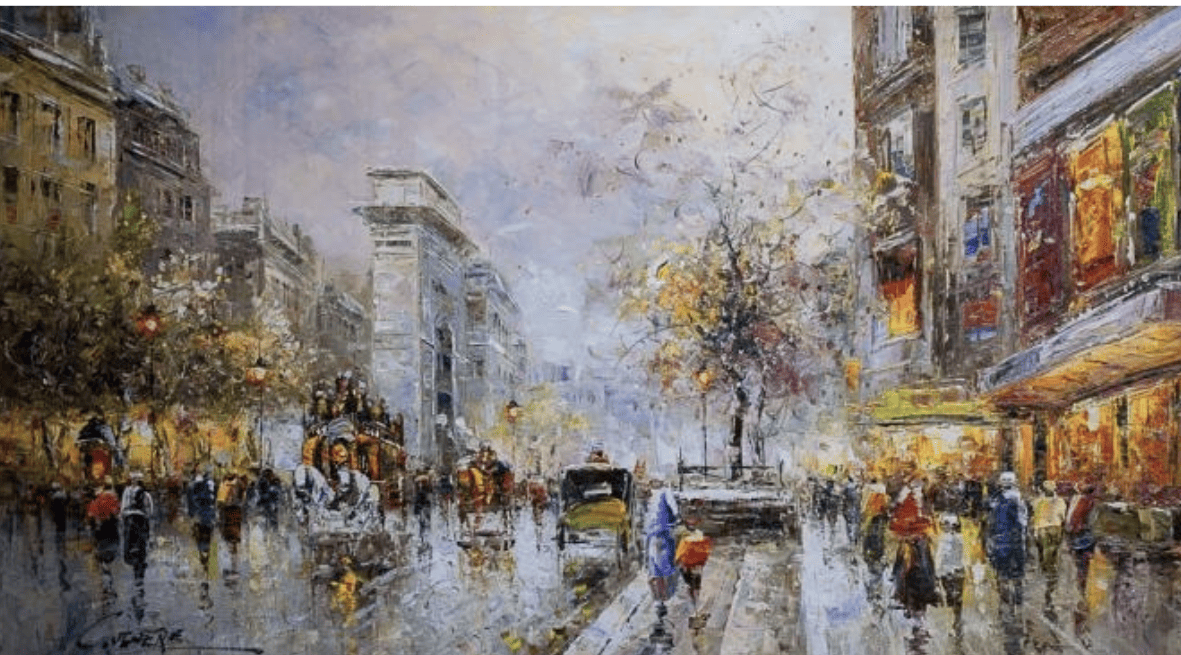
(Paris . Les Champs Elysées,, ArtNow.ru)
It was mid-August, right before I stepped foot in Reims, right before being immersed in the integration week, right before starting at Sciences Po. In the hustle and bustle of Paris, I found myself on the Champs-Élysées, it’s great, it’s extravagant, it’s grand, and it has got me thinking.
Two months down the line, I sit in the Old Library, contemplating the transformative power of the French air and the value of transcending the confines of material wealth.
In today’s society, success is often measured by material wealth. A stroll around Champs-Élysées and you’ll see the wealth and opulence, you’ll feel the luxury and affluence. Even our media and magazines also share the same optics. It is no wonder that many people feel that they are unsuccessful if they do not have the latest and greatest possessions.
However, there’s a growing movement challenging this narrative, asserting that true success extends beyond material possessions. It revolves around the idea that a fulfilling and meaningful life is the true hallmark of success.
Dear Reader, you may think that I am sharing a tale familiar to every sixth person around here. However, there’s more to it, and it was none other than a Netflix series that reinforced the thoughts lingering in my head, compelling me to write down and share a piece of my mind.
It was the Netflix docu-series, Live to 100: Secrets of the Blue Zones, which provides a fascinating exploration into regions globally renowned for the exceptional longevity and health of their inhabitants.
From Okinawa, Japan, to Loma Linda, California, these Blue Zones unveil the secrets to a fulfilling life that go beyond the material realm. Diet, regular physical activity, strong social ties, and a sense of purpose emerge as vital factors contributing to the longevity and happiness of these communities.
The principles of the Blue Zones are not confined to these regions. The series explores how these principles can be applied, showcasing communities globally that are actively working to create their own Blue Zones. From altering dietary habits to fostering community engagement, these communities seek to enhance both the length and the quality of life.
For instance, the study compiling the happiest cities in the world sheds light on the multifaceted nature of success. Metrics such as quality of life, subjective well-being, work-life balance, and global city power contribute to the evaluation. An apt example of this is Copenhagen, Denmark, which consistently ranks among the world’s happiest cities, and stands as a testament to the success of a society that prioritises living standards, social security, and work-life balance. The Danish notion of “hygge,” encapsulating comfort, togetherness, and holistic well-being, perfectly embodies this approach.
Success in this sense moves beyond monetary metrics, embracing a more holistic and inclusive vision. It enriches our individual lives, communities, and the world, emphasising personal growth, relationships, health, contributions to society, and development as benchmarks of accomplishment.

(Paris . Les Champs Elysées,, ArtNow.ru)
I am not certain whether most of us can break free from the shackles of narrow definitions of success and embrace a holistic, inclusive vision. However, as I look around, a common thread is clear: success encompasses a multifaceted approach that prioritises not just individual achievements but the well-being of communities and the world at large. This vision transcends the limitations of the material world and resonates with the essence of a fulfilling, purpose-driven lifestyle, one that is sure to soar in the years to come.
Other posts that may interest you:
- Insight into the Warwick Economics Summit: A Discussion on the UK’s Economic System with Sir Howard Davies
- La grève des scénaristes et des acteurs: Hollywood en péril ?
- A forbidden fruit — nourished in shadows,
- Paris, December 21
- At your mercy at the coffee shop
Discover more from The Sundial Press
Subscribe to get the latest posts sent to your email.





